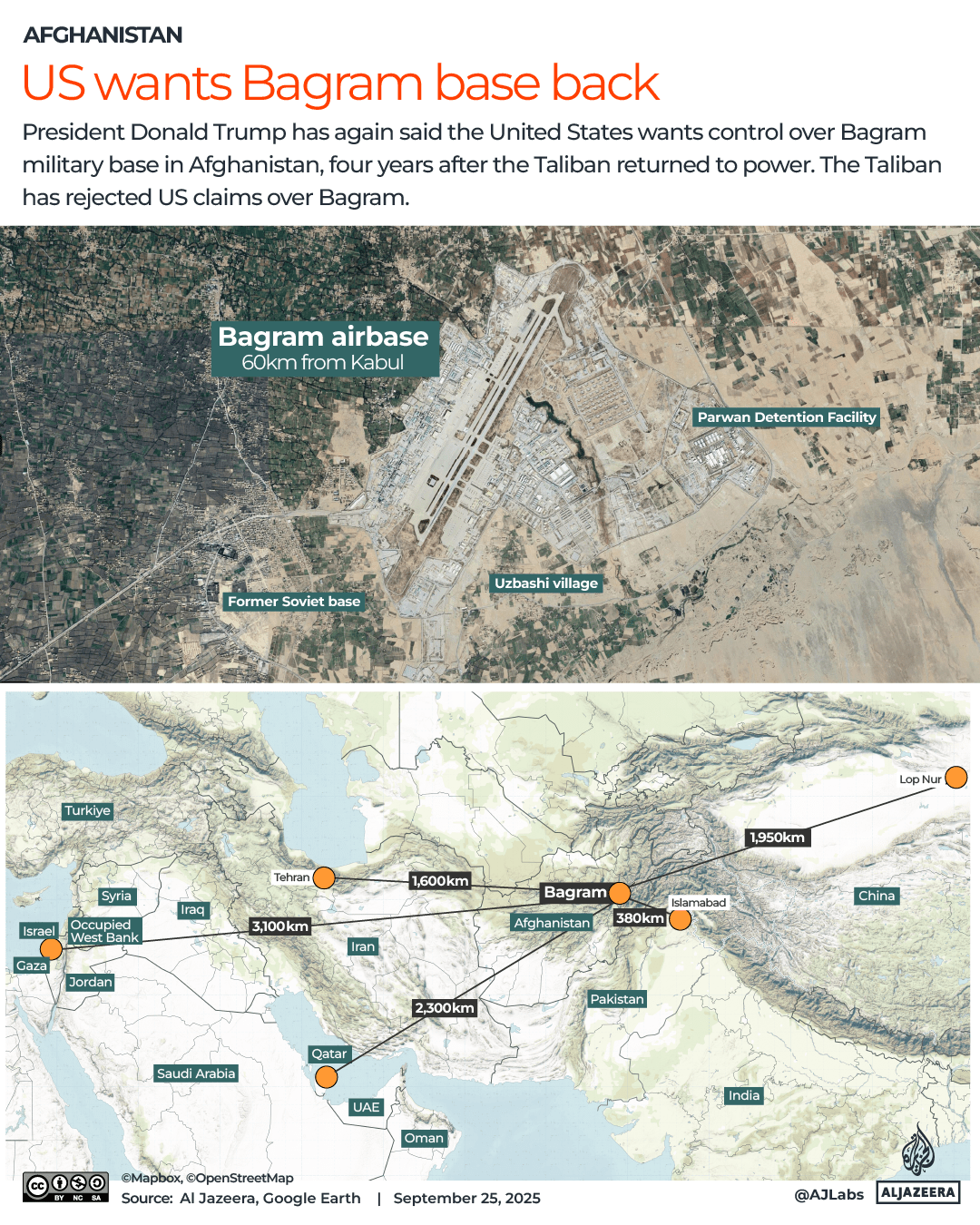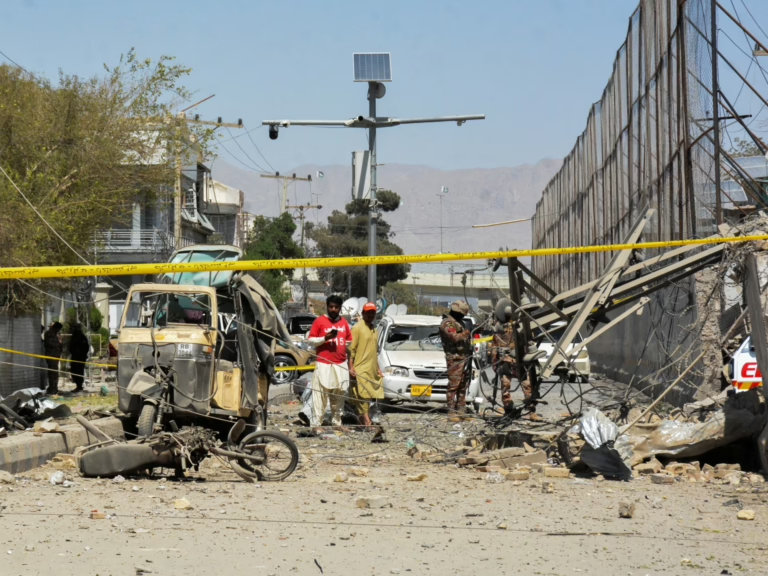Islamabad, Pakistan – Upon his visit to the military hospital in Bannu, located in the northwestern Khyber Pakhtunkhwa province, Prime Minister Shehbaz Sharif’s usual composed demeanor shifted to visible frustration on September 13.
The visit came in the wake of a deadly clash where at least 19 soldiers lost their lives battling militants from Tehreek-e-Taliban Pakistan (TTP), an armed faction often referred to as the Pakistan Taliban. This province shares a long, volatile border with Afghanistan, intensifying the security challenges.
Standing beside Army Chief Field Marshal Asim Munir, Sharif issued a stern warning directed at the Afghan Taliban, who regained control of Kabul following the US military withdrawal in August 2021. He accused them of harboring militants within Afghan territory.
“I want to make it unequivocally clear to Afghanistan today,” Sharif stated during a press briefing outside the hospital. “They must choose between two paths: either foster genuine goodwill and honest relations with Pakistan, or align themselves with terrorists. If they opt for the latter, we will sever all ties with the Afghan interim government.”
Despite these warnings, violence persisted. On September 16, five soldiers were killed when their vehicle was targeted by an improvised explosive device in Balochistan, another province bordering Afghanistan. Later, on September 30, a suicide bombing in Quetta, Balochistan’s capital, claimed at least 10 lives and injured 32 others.
According to the Pakistan Institute for Conflict and Security Studies (PICSS), based in Islamabad, August witnessed a sharp escalation in militant activity. Their data revealed a 74% rise in violent incidents compared to July, marking August as the deadliest month in over ten years.
“With 143 militant attacks recorded, August surpassed all monthly violence figures since February 2014, making it the most lethal month in recent memory,” the PICSS report highlighted.
The surge in attacks has worsened an already grim security landscape. In 2024 alone, Pakistan has suffered over 2,500 casualties due to violence, affecting both civilians and security forces, predominantly in Khyber Pakhtunkhwa and Balochistan.
Sharif did not hesitate to assign responsibility for the escalating bloodshed. “Terrorists infiltrate from Afghanistan and, in alliance with the TTP, these extremists sacrifice our soldiers, citizens, and families,” he declared at the hospital.
Originating in 2007 amid the US-led “war on terror,” the TTP has consistently waged an insurgency against the Pakistani state. Their objectives include enforcing strict Islamic law, demanding the release of imprisoned members, and reversing the integration of Pakistan’s tribal areas into Khyber Pakhtunkhwa.
The Pakistani government maintains that the TTP operates from Afghan soil and accuses Kabul of providing sanctuary. Islamabad frequently labels the group as “khawarij,” a term derived from Arabic historically used to describe extremist factions that denounce other Muslims as apostates.
Conversely, the Afghan Taliban have repeatedly denied these accusations. Zabihullah Mujahid, a spokesperson for the Taliban administration, cautioned against inflammatory rhetoric last month and called for collaborative efforts.
“Pakistan must take proactive measures to prevent such attacks,” Mujahid said in a Kabul interview shortly after Sharif’s remarks. “Information sharing between Islamabad and Kabul is essential to jointly counter these threats.”
Escalating Border Strains
The recent uptick in violence followed a period of relative calm earlier in the year, during which high-level Pakistani delegations visited Kabul and engaged in talks with Chinese officials, signaling potential diplomatic progress.
In April, Ishaq Dar, Pakistan’s foreign minister and deputy prime minister, made a significant visit to Kabul-the first by a senior Pakistani official since February 2023. Subsequently, in May, Dar met with his Chinese and Afghan counterparts, Wang Yi and Amir Khan Mutaqqi, in Beijing for an informal trilateral dialogue aimed at revitalizing diplomatic ties. The trio reconvened in Kabul in August, with China proposing an expanded role in regional mediation between Islamabad and Kabul.
Despite these diplomatic overtures, tangible action from the Afghan Taliban against the TTP remains elusive.
Iftikhar Firdous, cofounder of The Khorasan Diary, a platform monitoring regional security, expressed skepticism. “There has been no genuine commitment from the Afghan Taliban to confront the TTP within Afghanistan, and it is unlikely such a commitment will ever materialize,” he told Al Jazeera.
He characterized the Afghan Taliban as a “complex entity in a world where clear distinctions have blurred.”
“The TTP’s existence is intertwined with the Taliban’s ideology. Pakistan’s flawed expectation that a controlled Taliban government would stabilize the region has backfired. Relying on negotiations with the Taliban to resolve internal security issues is a grave miscalculation,” the Peshawar-based analyst added.
Diplomatic Efforts Stumble
During the Taliban’s initial rule in the 1990s, Pakistan was seen as a key supporter, with the military pursuing a “strategic depth” policy in Afghanistan to counterbalance India. However, the Taliban’s resurgence in 2021 has shifted this dynamic.
Currently, Kabul has intermittently sought closer ties with New Delhi, while the TTP’s insurgency within Pakistan continues unabated.
Kabul-based analyst Tameem Bahiss emphasizes that Pakistan’s long-term security depends on constructive engagement with Afghanistan through both bilateral and multilateral frameworks, despite significant challenges.
“The Afghan Taliban’s hesitation to take decisive action against the TTP stems from deep cultural and ideological bonds. They are unlikely to crack down harshly on a group with which they share historical and ideological connections,” Bahiss explained to Al Jazeera.
Complicating matters, the TTP has acquired more advanced weaponry, including night-vision equipment, drones, and heavier arms reportedly left behind after international forces exited Afghanistan.
Enduring Wounds
More concerning is the TTP’s ongoing recruitment within Pakistan’s tribal districts, where decades of conflict have eroded trust in the state.
Fahad Nabeel, head of the Islamabad-based research firm Geopolitical Insights, notes that successful counterinsurgency depends heavily on local support.
Previous military campaigns against militants from the mid-2000s to mid-2010s caused widespread displacement and economic hardship, fostering deep mistrust toward authorities.
Coordination issues between federal, provincial governments, and the military have further hampered efforts, Nabeel added.
“Political leadership and ownership of military operations are crucial. This was evident with the recently announced Operation Azm-e-Istehkam, which quickly became controversial due to unclear objectives and was never formally launched,” he said, referring to the June 2024 initiative by Sharif.
Bahiss highlighted the tribal belt’s two decades of trauma-from US drone strikes in the mid-2000s to ongoing militant violence and repeated Pakistani military operations-resulting in “deep psychological scars and resentment toward both the Pakistani state and its security forces.”
“These grievances have created fertile ground for the TTP’s resurgence, as the group increasingly frames its narrative around Pashtun marginalization,” he added.
From Local Discontent to National Security Challenge
While Pakistan and Afghanistan have long experienced simmering tensions, recent developments involving other global powers have further complicated the regional security landscape.
On September 18, during a visit to the United Kingdom, US President Donald Trump expressed a desire for Washington to regain control of Bagram Airbase, a strategic military facility near Kabul that was central to foreign operations in Afghanistan.
Shortly after, at a United Nations General Assembly side event in New York, foreign ministers from China, Iran, Pakistan, and Russia called on Afghanistan to take “effective, concrete, and verifiable measures” to dismantle militant groups operating within its borders.
They identified ISIL, al-Qaeda, the TTP, and others as significant threats to regional stability.
Importantly, the joint statement-part of a quadripartite dialogue initiated in 2017-also opposed the “reestablishment of military bases” like Bagram by “countries responsible for the current situation,” a clear reference to the US. The Afghan Taliban welcomed this declaration.

Security analyst Abdul Sayed, based in Sweden, believes the Afghan Taliban’s foremost priority is consolidating control within Afghanistan.
“Escalating Pakistan’s cross-border strikes or imposing harsher measures against the Taliban and Afghan civilians risks bolstering support for hostile groups, potentially intensifying militancy within Pakistan,” he warned Al Jazeera.
Pakistan has launched multiple airstrikes targeting militant hideouts in Afghanistan over recent years, the latest occurring in December 2024, resulting in at least 46 deaths, mostly civilians.
Additionally, Islamabad has pursued a policy of mass deportations. Since November 2023, Pakistan has initiated a phased campaign to expel millions of Afghans, citing security concerns. This has strained relations with Kabul and exacerbated an already dire humanitarian crisis, worsened by a recent devastating earthquake in eastern Afghanistan.
Nabeel suggests that Pakistan must foster goodwill among ordinary Afghans while firmly signaling that anti-Pakistan militant groups cannot operate with impunity if it hopes to curb violence.
“This strategy could enable Pakistan to conduct covert operations against hostile groups in Afghanistan. However, such efforts will only be effective if Pakistan simultaneously addresses the root causes of violence within its own borders, rather than relying solely on cross-border strikes,” he explained.
Firdous, the Peshawar-based security expert, believes that tensions between Pakistan and Afghanistan will persist beyond the current TTP crisis.
“The two neighbors face enduring challenges tied to existential concerns, with cross-border terrorism being just one unresolved issue rooted in their shared history,” he concluded.

















